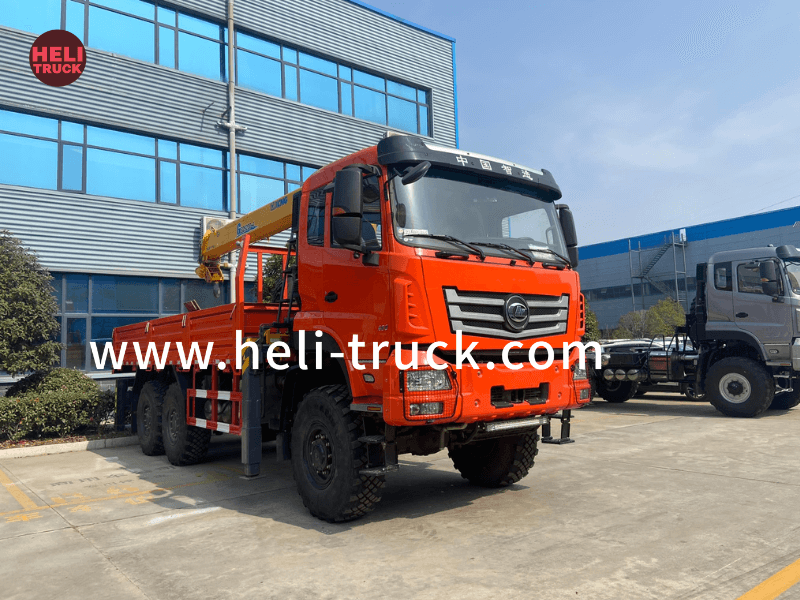Introduction
Waste management is a critical aspect of maintaining a clean and healthy environment. As the world's population continues to grow, the amount of waste generated also increases, posing significant challenges for municipalities and waste management companies. Special waste, which includes hazardous, industrial, and bulky waste, requires specialized handling to ensure proper disposal and minimize environmental impact. Garbage compactor trucks have emerged as essential tools in managing special waste efficiently and effectively. This article explores the role of garbage compactor trucks in handling special waste, their features, benefits, and the future of waste management.

Overview of Garbage Compactor Trucks
Garbage compactor trucks, also known as compactors or compaction trucks, are specially designed vehicles used for collecting and compacting waste materials. These trucks come in various sizes and configurations, depending on the specific requirements of the waste management operation. Garbage compactor trucks are equipped with a compactor mechanism that compresses waste materials, reducing their volume and increasing the truck's capacity to collect more waste before unloading.
Types of Special Waste Handled by Garbage Compactor Trucks
Garbage compactor trucks play a crucial role in managing various types of special waste, including:
1. Hazardous Waste: Hazardous waste, such as chemicals, solvents, and medical waste, poses serious health and environmental risks if not handled properly. Garbage compactor trucks designed for hazardous waste are equipped with features to prevent leaks, spills, and contamination during collection and transportation.
2. Industrial Waste: Industrial waste, generated by manufacturing plants, construction sites, and other industrial facilities, requires specialized handling due to its size and composition. Garbage compactor trucks for industrial waste are designed to handle bulky materials, such as scrap metal, concrete, and debris, efficiently.
3. Bulky Waste: Bulky waste, including furniture, appliances, and electronic waste, poses challenges in transportation and disposal due to its size and weight. Garbage compactor trucks equipped to handle bulky waste have larger loading capacities and compaction mechanisms to maximize space utilization.
Features of Garbage Compactor Trucks for Special Waste
Garbage compactor trucks designed for special waste incorporate a range of features to ensure safe and efficient waste collection and disposal. Some key features include:
1. Sealed go now : Special waste, especially hazardous waste, must be contained securely to prevent leaks and spills during transportation. Garbage compactor trucks have sealed compartments with leak-proof seals to contain waste materials effectively.
2. Compaction Mechanism: The compaction mechanism in garbage compactor trucks compresses waste materials, reducing their volume and minimizing the number of trips required for disposal. This feature increases operational efficiency and reduces transportation costs.
3. Hydraulic System: Garbage compactor trucks are equipped with hydraulic systems that power the compaction mechanism and other essential functions, such as lifting and emptying bins. The hydraulic system ensures smooth and reliable operation of the truck during waste collection.
4. Safety Features: Special waste handling poses risks to workers and the environment if not managed properly. Garbage compactor trucks are equipped with safety features, such as emergency stop buttons, backup alarms, and warning lights, to ensure the safety of operators and bystanders during operation.
Benefits of Using Garbage Compactor Trucks for Special Waste
The use of garbage compactor trucks for handling special waste offers numerous benefits to waste management companies, municipalities, and the environment. Some of the key benefits include:
1. Improved Efficiency: Garbage compactor trucks can collect and compact larger volumes of waste compared to conventional waste collection vehicles. This increased efficiency results in fewer trips to disposal sites, reduced fuel consumption, and lower operational costs.
2. Enhanced Safety: Special waste, such as hazardous and industrial waste, requires careful handling to prevent accidents and environmental contamination. Garbage compactor trucks with sealed compartments and safety features help minimize risks to workers and the public during waste collection and transportation.
3. Environmental Protection: Proper management of special waste is essential to protect the environment from pollution and contamination. Garbage compactor trucks help contain and transport special waste securely, reducing the risk of leaks and spills that could harm ecosystems and water sources.
4. Space Optimization: The compaction mechanism in garbage compactor trucks reduces the volume of waste materials, allowing for more efficient use of storage space in the truck. This feature maximizes the truck's capacity and minimizes the need for multiple trips to disposal sites.
Future Trends in Waste Management with Garbage Compactor Trucks
As technology continues to advance, the future of waste management with garbage compactor trucks is poised to see significant improvements and innovations. Some emerging trends in waste management include:
1. Integration of IoT and Telematics: The integration of Internet of Things (IoT) sensors and telematics systems in garbage compactor trucks enables real-time monitoring of waste collection routes, bin fill levels, and truck performance. This data-driven approach allows waste management companies to optimize operations, reduce costs, and improve service quality.
2. Adoption of Alternative Fuels: To reduce greenhouse gas emissions and dependence on fossil fuels, garbage compactor trucks are increasingly being powered by alternative fuels, such as electricity, natural gas, and hydrogen. These cleaner energy sources help mitigate environmental impact and promote sustainability in waste management practices.
3. Automation and Robotics: The automation of waste collection processes through robotic arms and sensors enhances the efficiency and safety of garbage compactor trucks. Automated systems can handle waste sorting, bin emptying, and compaction tasks with precision, reducing manual labor and improving overall operational performance.
Conclusion
Garbage compactor trucks play a vital role in managing special waste efficiently and effectively. With their compaction mechanisms, sealed compartments, and safety features, these trucks help waste management companies and municipalities address the challenges of handling hazardous, industrial, and bulky waste. The benefits of using garbage compactor trucks include improved operational efficiency, enhanced safety, environmental protection, and space optimization. As technology continues to evolve, the future of waste management with garbage compactor trucks holds promising advancements in IoT integration, alternative fuels, and automation. By embracing these trends and innovations, the waste management industry can achieve greater sustainability and environmental stewardship in handling special waste.
